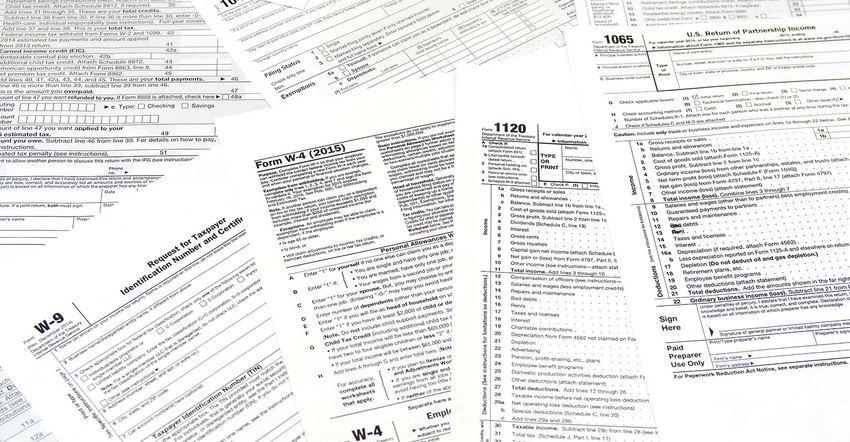
Happy New Year! If the end of the year came up just a little too quickly, and you couldn’t quite get to the tax strategies you wanted to make, you’re in luck. We have some business advice to pass along.
Since we missed the window to use cash expenses, our options are more limited -- but there are still ways to control taxable income. While it may feel easier to take a little breather after the holiday season and wait until February to get all your information over to your CPA, I recommend scheduling a meeting as soon as you can this month to go through your books, come up with a plan to handle the tax liability, and make the decision to extend or not extend your return early.
Get ahead
Seasonality in agriculture doesn’t only apply to planting and harvest. Since farmers all have similar schedules, they tend to finish their bookkeeping around the same time as well. So – on the tax return preparation side – everyone’s tax information comes in around the same time, everyone has the same deadline, and everyone wants their return as soon as possible. It turns into a “sipping from a fire-hose” situation pretty quickly. Don’t feel sorry for your CPA/tax preparer though; they know what they signed up for.
By getting out ahead of the group, you can work with your CPA or tax preparer to come up with your tax plan beforehand so – when all those 1099’s come in – everyone has an idea of what the final numbers should be close to. I say “should be close to” because there are always a few things that will throw off a tax plan. The goal isn’t to get it exact, but to make sure you’re capturing all the big ticket items. Big ticket items generally include equipment purchases, land purchases, prepaid crop inputs (especially if purchased on loan).
Go into your January meeting with all those documents in hand and be ready to talk about them at length.
Having the plan early allows you to set expectations and to prepare. Chances are you’ll need to pay some money in since we missed the opportunity for a lot of those cash-basis year-end positions with prepaids, deferred income, etc. However, if you have some expectation of what your tax liability is and some time to prepare, you can utilize other parts of the tax code in your favor.
Such as?
Currently, farmers (as defined by the Internal Revenue Code) are allowed to make all of their tax payment by March 1 if they file their return and pay by then. However, if you make an estimated payment in January to cover your minimum tax liability (lesser of 100% of previous year or 90% current year), you can pay the rest on April 15th.
Making the estimated payment has an additional benefit that the return now has a due date of April 15th as well, giving you an additional month-and-a-half to financially prepare to make the rest of the payment.
Since you may not be in control of when your return is finished (see “sipping from a fire hose” above), having the plan early will allow you to work with your CPA or tax preparer to come up with expectations of when the return can be done. It is not uncommon for CPAs and tax preparers to ask clients to extend returns just to spread out the workload and get more difficult projects out of busy season so that they can spend more time on them.
If you think you can or should extend your return, don’t be afraid to ask if your preparer will work with you on the price. It’s a win-win in most cases if you can make the decision early to extend a return because it’s better to extend the return if it is best for you; not because you have to.
If you didn’t get a chance to meet with your CPA or tax preparer before the end of December, give them a call and see if they can help you come up with a tax plan anyway. They will appreciate hearing from you and can help you prepare for your tax return; even though it may not be quite the same as usual.
The opinions of the author are not necessarily those of Farm Futures or Farm Progress.
About the Author(s)
You May Also Like






